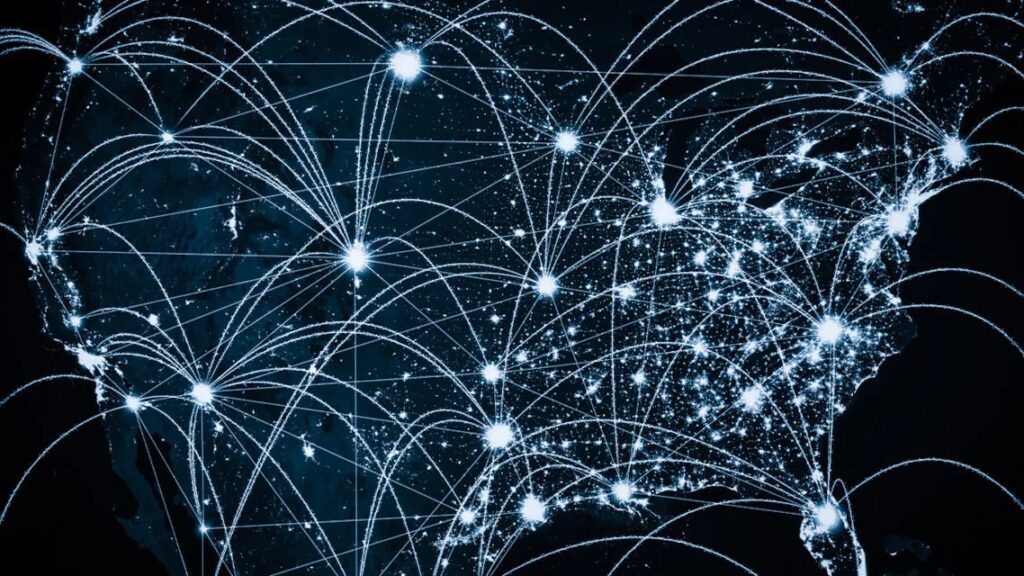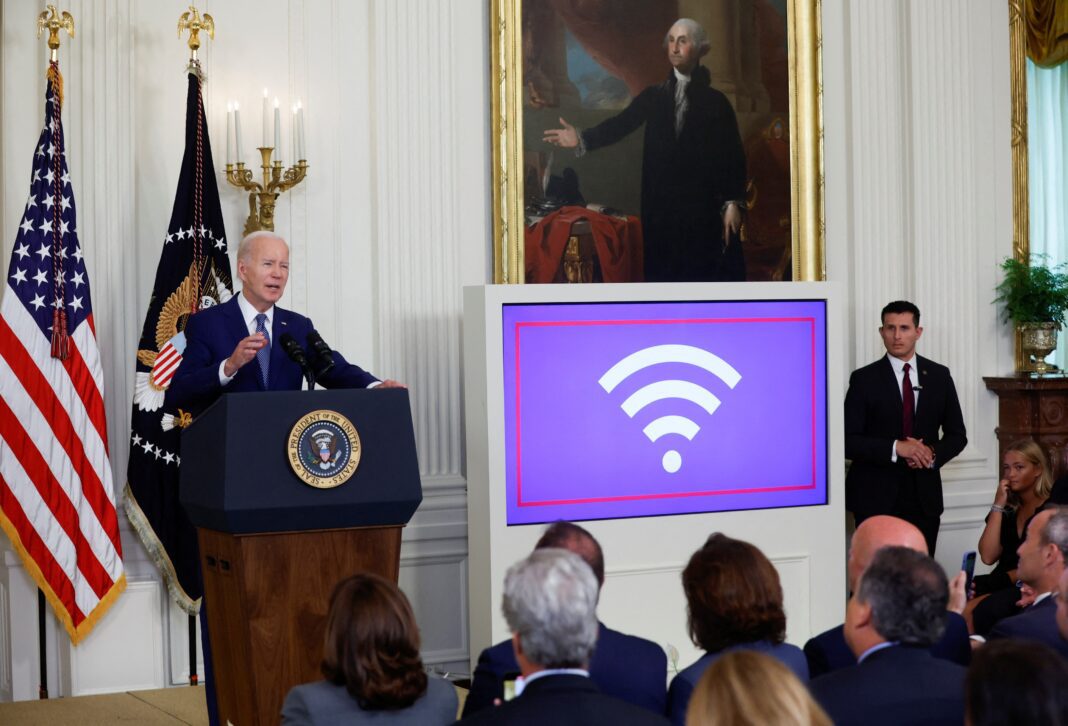US to make access to high-speed broadband universal by 2030. As part of President Joe Biden’s economic policies, $42 billion has been allocated to the Broadband Equity Access and Deployment Program, authorized by the $1 trillion 2021 infrastructure law. This investment marks the largest-ever allocation for high-speed internet and aims to bridge the digital divide, ensuring that internet access becomes as essential as electricity or water in today’s economy.
Addressing the importance of internet access, President Biden stated, “Because for today’s economy to work for everyone, internet access is just as important as electricity, or water, or other basic services.” The funding distribution is based on the recently released Federal Communications Commission coverage map, which identifies gaps in broadband access across the nation.
Texas and California, the two most populous states in the US, top the list of funding recipients, receiving $3.1 billion and $1.9 billion, respectively. Surprisingly, less populous states such as Virginia, Alabama, and Louisiana also rank in the top 10 due to their significant rural areas with limited internet connectivity compared to their urban centers.
The funding allocation ranges from $27 million for US territories like the US Virgin Islands to over $3.3 billion for Texas, with each state receiving a minimum of $107 million. These funds will kickstart the implementation of broadband access initiatives and pave the way for progress in underserved areas.
This announcement marks the beginning of President Biden’s tour to promote the impact of legislation passed during his tenure. As part of his efforts to highlight “Bidenomics,” he is scheduled to deliver a major economic speech in Chicago on Wednesday, emphasizing the positive outcomes of his policies. With the 2024 election on the horizon, the economy will be a central issue, and Biden’s success in handling it will face scrutiny.
The public’s sentiment towards President Biden’s performance reveals a mixed response. According to a recent report, 54% of Americans disapprove of his job performance, with only 35% approving of his handling of the economy. These numbers underscore the importance of effectively communicating the benefits of the broadband initiative to regain public trust and support.
The lack of broadband access has been particularly evident during the COVID-19 pandemic, as remote learning became the norm for many students. The disparities in internet connectivity were stark, with students from underserved communities struggling to access online education. The initiative to provide universal broadband access aims to address this issue, ensuring equal opportunities for all students regardless of their geographical location.

One of the challenges faced by broadband companies in expanding access to rural communities is the high cost of infrastructure investments with limited potential subscriber bases. Major companies such as Verizon, Comcast, Charter Communications, and AT&T have been hesitant to venture into these low-population areas. The government’s funding injection will incentivize and support these companies in extending their services to underserved regions, bridging the digital divide.
States are expected to submit initial plans later this year, which will unlock 20% of the allocated funding. Once the plans are finalized, it may take until 2025 for the remaining funds to be released. The extensive planning process reflects the commitment to ensuring that the funds are utilized effectively and efficiently to achieve the goal of universal broadband access.
Read more: ChatGPT to transform construction industry in UAE, Saudi Arabia
In conclusion, the US government’s commitment of $42 billion to make internet access universal by 2030 marks a significant milestone in bridging the digital divide. The initiative aims to provide equal opportunities for all Americans and ensure that internet access becomes an essential service akin to electricity and water. By addressing the gaps in broadband coverage and encouraging private sector participation, the US government is taking a crucial step toward creating a more equitable and connected society.



